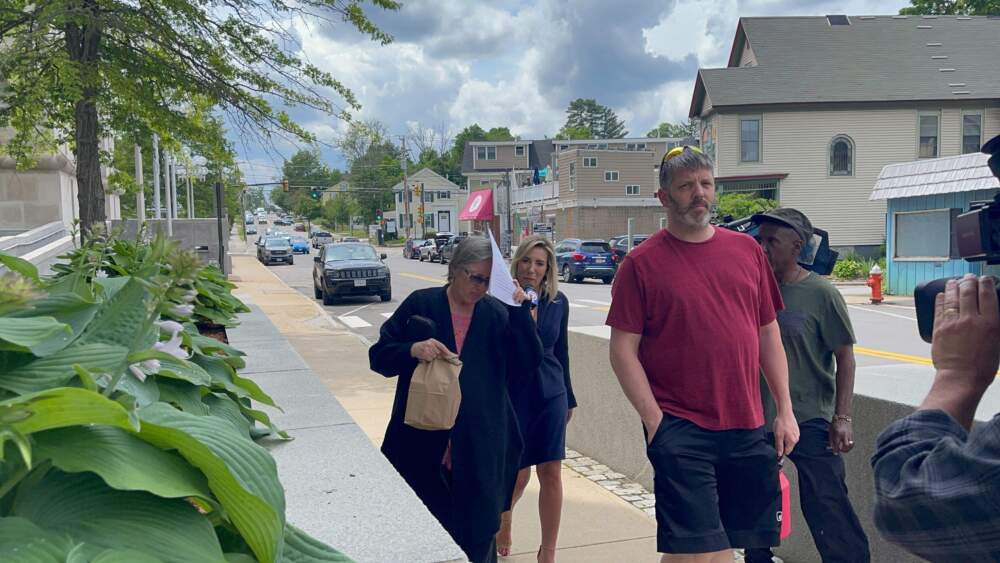Advertisement
Wife of ex-Harvard morgue manager agrees to plead guilty to transporting stolen human remains

The wife of Harvard Medical School’s former morgue manager agreed to plead guilty to transporting stolen human remains taken from donor bodies, court records show, even as her attorney questioned the legal basis for the criminal case.
Prosecutors say Denise Lodge and her husband, Cedric, ran a multi-state human remains network, using the bodies of people who donated their remains to Harvard Medical School. Starting as early as 2018, prosecutors say, Cedric Lodge began bringing home heads, brains and skin to their New Hampshire home, where Denise would then mail them across the country.
One buyer allegedly sent Denise Lodge more than $37,000 via PayPal, with payment memos reading “head number 7” and “braiiiiiins.”
Denise Lodge’s attorney, Hope Lefeber, in an interview put the blame on Lodge’s husband. “Her husband was doing this and she just kind of went along with it,” Lefeber said. The Lodges remain married, she said.
Lefeber said there are novel legal issues with this case, including whether human remains qualify as “goods, wares or merchandise” under federal law. And when it comes to calculating the monetary loss to the victims, she argued, it’s not clear who the victim is: Harvard, or the deceased.
In the plea agreement, prosecutors estimate the “loss” to the victims was between $45,000 to $90,000, roughly what the Lodges made on the sales. But Lefeber said Harvard could never have sold the human remains and therefore did not suffer a monetary loss.
“What happened here is wrong,” she said. “But to define economic loss here is not really possible because no one lost money.” She said the families also didn’t lose money because they “weren't selling their loved ones’ bodies.”
“This is more of a moral and ethical dilemma here than a criminal case,” she said.
Cedric Lodge had worked in Harvard’s morgue for almost three decades. He was fired in May, a month before the Lodges and several buyers were indicted by prosecutors in Pennsylvania on charges of conspiracy and interstate transport of stolen goods.
Lefeber said Denise Lodge chose to plead guilty because of personal health issues and the risk of a harsher punishment if she went to trial. The charge she pleaded guilty to carries a sentence of up to 10 years in prison and a fine of $250,000.
Under her plea agreement, filed earlier this week, she will plead guilty to transporting stolen goods; the rest of the charges will be dismissed.
A spokesperson from the U.S. Attorney’s Office for the Middle District of Pennsylvania did not immediately respond to a request for comment.
Cedric Lodge has pleaded not guilty, as have two of the alleged buyers, Joshua Taylor of Pennsylvania and Katrina Maclean of Salem. Prosecutors say Cedric Lodge allowed Taylor and MacLean into Harvard’s morgue, essentially to shop for body parts.
Lefeber declined to say whether Denise Lodge will testify against the others.
It was the investigation of a Pennsylvania man, Jeremy Pauley, that ensnared the Lodges and Harvard, records show. Police called to Pauley’s home in July 2022 found five-gallon buckets filled with body parts. From there, investigators discovered a nationwide human remains network that included body parts sourced from Harvard and an Arkansas mortuary.
Pauley pleaded guilty in Pennsylvania state court to charges of abuse of a corpse and to federal charges of conspiracy and interstate transport of stolen goods.
